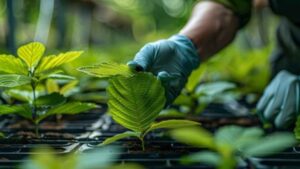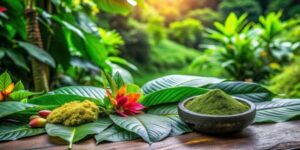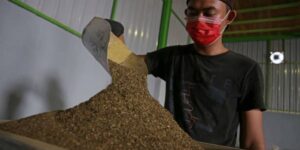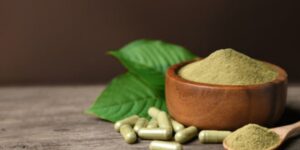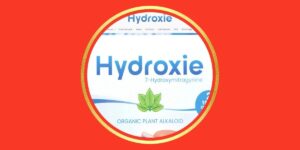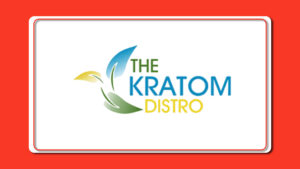Consumers focus primarily on safety and quality issues during the increasing surge of cannabis products in the market. The companies, as well as their products, regularly fail to deliver products that match their packaging specifications. The identification of safety levels and product quality for these businesses and their offerings can be done easily through third-party lab testing of cannabinoids.
Third-party testing laboratories enable consumers to confirm the purity level and safety along with potency ratings in CBD and cannabis products.
Customers who are unsure about purchasing CBD products alongside retailers who want to buy dependable products can use third-party laboratory reports to determine which products deserve trust and which ones should be avoided.
The next part of this article explains third-party laboratory operations while exploring their test certification procedures.
What Is Third-Party Lab Testing?
Companies allow independent organizations that remain uninvolved in their products to perform quality tests as third-party testing. The quality assessment and performance evaluation of the product take place during this review process.
Stakeholders conduct tests for products according to the established requirements and regulations. Consumers rely on third-party laboratories because these organizations show complete impartiality in their testing. Food and beverage products, together with pharmaceuticals and makeup, belong to the categories of items that receive third-party testing.
Key Components of Third-Party Lab Testing
- Potency Testing: Measures the concentration of cannabinoids like CBD, THC, and others.
- Contaminant Testing: The device detects potentially hazardous food components, including pesticides, heavy metal elements, and microbial toxins.
- Residual Solvent Testing: The instrument determines what remains of used solvents that were part of the extraction operations.
- Terpene Profiling: The analysis includes a complete breakdown of the terpenes found in the product since these compounds influence both the scent profile and possible effects during use.
Why Should CBD or Cannabis Companies Use a Third-Party Testing Lab?
CBD, along with cannabis, serves both medical purposes and recreational functions. Entrepreneurial CBD and cannabis companies should rely on third-party laboratory testing because of its importance. Here are a few reasons:
1. Quality and Safety
The third-party testing process enables businesses to deliver premium cannabis products containing correct cannabis levels that meet fit-for-consumption standards. Laboratory testing verifies that the products contain no pesticides, heavy metals, or solvents as well as molds.
2. Preventing Health Risks
Health risks diminish through third-party testing because the process verifies product safety parameters, purity levels, and potency measurements. Proper testing protocols remove dangerous chemicals, including butane or ethano,l since these substances trigger breathing complications and toxicity effects.
The testing detects allergens, which prevents allergic responses from occurring.
3. Regulatory Compliance
Third-party testing ensures that cannabis products and their ingredients are compliant with all local and state as well as federal regulations. The testing facilities produce Certificates of Analysis(COAs) that display complete information about product cannabinoid profiles while showing safety standards compliance and contamination test results.
4. Customer Trust
Through third-party testing, customers can trust manufacturers because this practice delivers clear product labels showing their CBD, THC, etc. content, enabling consumers to understand what exactly they buy. Customers trust the results of safety tests delivered by these labs because these laboratories maintain impartiality that increases product credibility.
5. Retailer Requirements
Third-party testing builds retailers’ confidence. The verification process shows that the products contain no harmful contaminants while also displaying proper labeling to lower retailers’ possible risks. Products that undergo third-party testing gain their credibility up to consumer standards while attracting more customers, thus enabling retailers to build market leadership.
Challenges and Limitations of Third-Party Lab Testing
There are multiple obstacles during the third-party testing process that affect both the operation and dependability. A few of these challenges are:
1. Lack of Standardization
Each laboratory follows different procedures for cannabinoid analytics and contamination examinations, which results in dissimilar test findings and interpretation outcomes. Rugged regulatory compliance procedures face obstacles because of inconsistent methods, which results in challenges in creating reliable and accurate data derivatives.
2. Cost Considerations
Smaller companies face substantial problems with costs while determining the right steps for investing money in their business operations. Smaller companies struggle with their restricted finances, which makes third-party testing expensive, so it affects their product quality negatively.
Organizations encounter increasing challenges when they need to control their growing expenses related to requirements and testing demands.
3. Timing Issues
Product launch timelines suffer from the combined effects of testing services and laboratory sample transport procedures, as well as testing result waiting periods. Early product launch delays create massive revenue losses, which additionally cause unfavorable business opportunities to fade away.
4. Data Integrity and Safety
The assurance of data safety and integrity during testing processes represents a fundamental requirement to stop academic or security breaches along with data manipulations. A faulty sample analysis occurs because of cross-contamination as well as mislabeling and improper sample management, which makes results unreliable.
5. Interpretation of Results
Results need to be evaluated through proper regulatory standards as well as safety protocols. The safety of customers gets compromised when interpretation methods are inconsistent thus creating confusion and communication problems. Different findings produced by labs also create additional difficulties to the analysis.
What Are Cannabis Testing Lab Accreditations?
The certification process allows laboratories to prove their expertise in addition to their precision and commitment through testing lab accreditations. Accreditations serve as essential requirements to validate testing results that produce consistent, accurate, and reliable results.
Laboratory accreditation is essential for both product safety inspections as well as quality control testing, which fulfills regulatory standards and develops customer trust. Here are a few key accreditations for lab testing cannabinoids:
- ISO/IEC 17025 Accreditation
- Association of Official Agricultural Chemists (AOAC)
- National Environmental Laboratory Accreditation Program (NELAP)
- American Association for Laboratory Accreditation (A2LA)
Which Cannabis Certifications Are the Most Recognizable?
The cannabis industry uses several recognized certifications to ensure the wide adoption of product safety protocols, quality criteria, and compliance measures. Here are a few of those:
1. National Safety Federation(NSF)
NSF operates as a worldwide organization dedicated to public health and safety standards. The certification process in cannabis industries plays an essential role because it ensures that safety standards, quality benchmarks, and sustainability metrics are fulfilled.
2. U.S Hemp Authority
As a new addition to hemp and CBD product certification, the U.S. Hemp program created self-regulating practices in 2018 to build trust among consumers and retailers. The program guarantees the best agricultural techniques together with industrial practices, which follow both established mandates and sustainability requirements and enforcement standards.
3. USDA Organic
The USDA Organic certification verifies that organic production practices were used, which excluded synthetic fertilizers and pesticides from the production process. An extensive base of consumers depends on this verification to identify organic cannabis since it offers trustworthy assurance.
4. GACP(Good Agricultural and Collection Practices)
Current standards developed by WHO under the GACP identify optimal methods for growing and collecting medicinal plant materials of excellent quality. The certification standards promote safe as well as sustainable practices, and thus, they serve as essential guidelines for cannabis cultivation.
5. ISO 9001
ISO 9001 issues more than one million organizational certificates throughout 189 countries globally. This internationally recognized standard exists for quality management and functions across different industries, including cannabis operations.
Tips for Businesses: Implementing Third-Party Lab Testing
For businesses in the cannabinoid industry, third-party lab testing of cannabinoids is not just a best practice—it’s a necessity. Here’s how to implement it effectively:
- Choose an Accredited Lab: Partner with a lab that has the proper accreditations and a strong reputation.
- Test Every Batch: Ensure that every product batch is tested to maintain consistency and quality.
- Be Transparent with Consumers: Make COAs easily accessible and educate consumers about the importance of lab testing.
- Stay Updated on Regulations: Keep up with changing regulations to ensure compliance and avoid legal issues.
Final Thoughts
Third-party laboratory testing functions as the foundation of the cannabinoid industry to guarantee both safety and successful quality assurance and potency validation in products. People who understand lab testing, together with COA interpretations and brand selection, can confidently make decisions that yield peace of mind.
All businesses need to establish strict lab testing programs to create trust with customers and meet regulatory requirements while manufacturing top-grade products.
Third-party lab testing positions as a fundamental pillar for directing the industry growth trajectory of medical marijuana industries. Every cannabinoid consumer and business owner needs to stay educated about laboratory testing standards and techniques to make confident decisions about the cannabis market.
More Readings:


